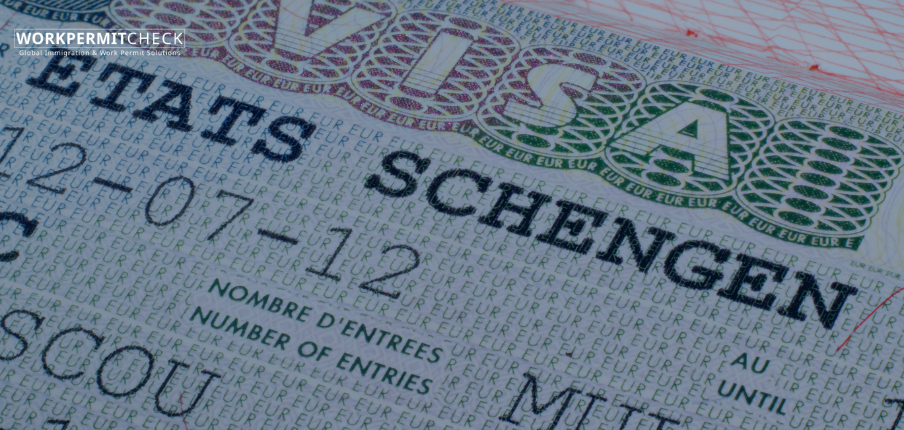Teaching English in France is a popular opportunity for non-EU nationals, particularly those from English-speaking countries. Whether you're a recent graduate, an experienced educator, or a language assistant, there are several ways to legally teach English in France—provided you obtain the correct visa and work permit.
This blog post explains how non-EU citizens can teach English in France, the types of employment available, and the permits required.
Is It Possible to Teach English in France with a Work Permit?
Yes, non-EU citizens can teach English in France, but you must obtain a valid work permit and long-stay visa before beginning employment. There are several pathways depending on your qualifications, background, and the nature of the job (public school, private language center, university, etc.).
Common Employment Options for Teaching English in France
1. Teaching Assistant Program (TAPIF)
-
For citizens of countries like the United States, Canada, Australia, and others.
-
Age typically 20–35 years.
-
Work 12 hours/week in public schools.
-
Receive a stipend and a temporary residence permit (visa de long séjour valant titre de séjour).
-
This visa does not always permit additional paid work outside the assistantship.
2. Private Language Schools
-
Language centers like Berlitz, Wall Street English, and local academies hire native English speakers.
-
Employers must sponsor your work permit and assist with visa formalities.
-
Typically requires a bachelor’s degree and some teaching experience or certification (TEFL/TESOL preferred).
3. International Schools or Universities
-
Higher-level positions may be available for qualified teachers with formal teaching credentials (e.g., PGCE, state teaching license).
-
These positions are more competitive and often require a higher salary level, which helps in work permit approval.
-
Talent Passport – Qualified Employee or Skills and Talents permits may apply.
4. Freelancing or Private Tutoring
-
Requires a self-employment or micro-entrepreneur permit.
-
You must register as a sole proprietor (auto-entrepreneur) and apply for a "Profession libérale" residence permit.
-
Requires proof of income, business plan, and legal residence status.
Requirements to Teach English in France
-
Valid job offer or teaching contract from a registered employer in France.
-
Relevant qualifications: Bachelor’s degree minimum; teaching certifications such as TEFL, TESOL, CELTA, or equivalent.
-
Work permit (Autorisation de travail) sponsored by the employer.
-
Long-stay visa (VLS-TS) issued by the French consulate based on your job contract.
-
Proof of accommodation, financial means, and sometimes health insurance during the visa process.
Can You Teach English on a Tourist Visa?
No, it is illegal to work or teach on a tourist visa in France. Doing so may result in fines, deportation, and a ban on re-entry. Always obtain the correct work authorization before engaging in paid employment.
Can You Teach English While Studying in France?
If you hold a student visa, you are allowed to work up to 964 hours per year (around 20 hours per week). This includes part-time English teaching or tutoring, but you should:
-
Inform your school or university.
-
Ensure the employer respects the hourly cap.
-
Declare your income properly for tax and social security purposes.
Work Permit Application Process
-
Secure a job offer from a French employer.
-
The employer applies for a work permit through the French immigration portal.
-
Once approved, the applicant applies for a visa at the French consulate in their home country.
-
After arrival, the visa must be validated online or exchanged for a residence permit at the prefecture.
Final Tips for Teaching English in France
-
Consider applying early, as the visa and permit process can take several weeks or months.
-
Work legally: ensure your employer is authorized to hire non-EU nationals.
-
Teaching certifications improve your employability and visa success chances.
-
Learning some French will help you adapt and navigate bureaucracy more easily.
Conclusion
Teaching English in France is a viable and rewarding option for non-EU citizens, but it requires proper planning, documentation, and legal compliance. Whether through government programs, private schools, or freelance opportunities, there are multiple pathways to securing a work permit and visa to live and teach in France.
Disclaimer:
This blog post is for informational purposes only and does not constitute legal advice. French immigration policies and labor laws are subject to change. For official guidance, consult the French consulate, the Ministry of the Interior, or a licensed immigration advisor before making any decisions related to employment or relocation.






























































































